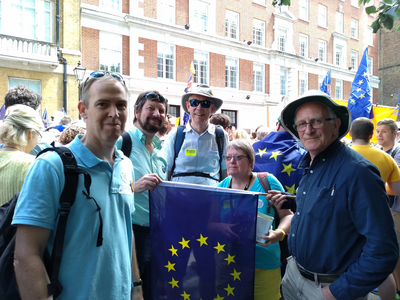Brexit: Mole Valley Council to debate People’s Vote

Mole Valley District Council will be asked at its next meeting on Tuesday 9 October to debate a Liberal Democrat motion calling for a People's Vote on the Government's proposed Brexit settlement.
Fetcham West Councillor Paul Kennedy, the party's Parliamentary Spokesperson for Mole Valley, has proposed the motion, which calls on the Council to write to Mole Valley's two MPs, Sir Paul Beresford and Chris Grayling, the Prime Minister Theresa May, and Brexit Secretary Dominic Raab.
Cllr Kennedy said:
"This motion is about democracy. Our future relationship with the European Union is too important to be decided by politicians alone, which is why we believe that Mole Valley residents should get a proper say on whatever is to replace our current EU membership.
"Mole Valley residents mostly wanted to remain full members of the European Union, and there is increasing awareness and concern about the risks associated with different options that the Government is now considering, particularly for local residents and businesses, farming, public services and our environment. Mole Valley businesses have already been hit such as our potential exclusion from the Galileo satellite project. And Brexit is exacerbating difficulties in recruiting farm workers, as well as nursing staff in our hospitals and care homes, and mathematics and foreign language teachers in our schools.
"A People's Vote will give Mole Valley residents a say on the Brexit options the Government is now considering - whether the Norway, Switzerland or Canada agreements, Chequers, no deal or something new - which were not explored during the referendum on EU membership on 23 June 2016. There is virtually no support and certainly no democratic mandate for the Prime Minister's latest 'Chequers' proposal under which Britain would continue to follow EU rules for goods and food in exchange for continued single market access, but would give up our ability to veto or propose changes to those rules. And our vital services industry, which makes up 80% of the British economy, and where we have a large trade surplus with the rest of the EU, would be excluded from its biggest export market."
